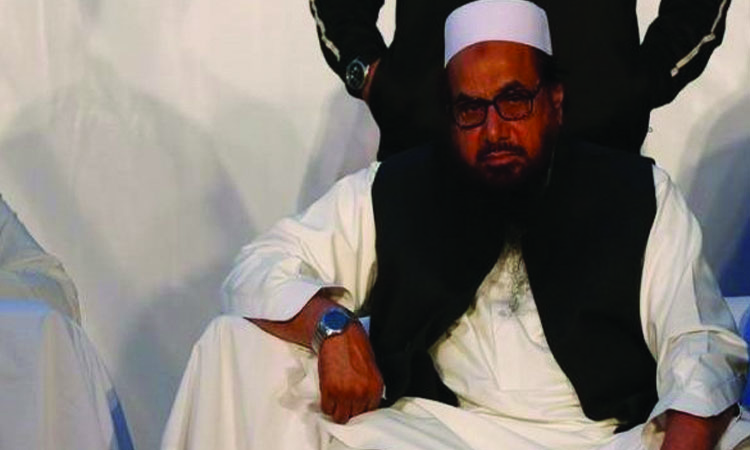Islamabad : The sentencing of Mumbai terror attack mastermind Hafiz Saeed to 31 years imprisonment by an anti-terrorism court in Pakistan seems to be a stage-managed show by the country for the global money laundering and terrorist financing watchdog Financial Action Task Force (FATF), writes Sergio Restelli for The Times of Israel.
Pakistan, grey-listed by FATF in the past few years, is desperate to prove its seriousness in curbing the terror financing operating in the country and has thus resorted to using its old tactics of sentencing terrorists who will later be freed by the higher courts of the country.
After the 2008 Mumbai terror attacks, Saeed and his cohorts have been sentenced by Pakistan on numerous occasions, however, every time, the prosecution is challenged in a higher court and the judges have been eager to dispose of the cases.
Hafiz Saeed is an infamous terrorist who has survived all kinds of scrutiny and sanctions and lived to tell the tale of Pakistan’s deep relationship with jihad. He lives in plain sight of everyone, runs a corporate empire, and has ties with the Pakistan Army and several political leaders. He is also the head of Lashkar-e-Taiba (LeT), a global terrorist group involved in several terrorist attacks across the world, including the one in Mumbai, writes Restelli.
Moreover, Saeed has been fundraising through various charity fronts and voluntary contributions from Pakistan political leaders and businessmen. However, none of these patrons has been held accountable for terror financing, despite these facts being in the public domain for a long time.
Thus, the Pakistan government finally waking up to these facts in July 2019 and ordering action to be taken against Saeed and his group for terrorist financing seems to be a desperate attempt to put up a good show for the FATF.
Notably, these actions come after Pakistan was first time grey-listed by FATF in June 2018 and was given one year to fulfil a checklist of requirements to be white-listed. Increased pressure from FATF after inaction for a year and the possibility of being blacklisted for not complying with the watchdog’s requirements became the country’s drive to take action against terrorist groups, according to Restelli.
Finally, four years after being sanctioned, Pakistan has taken a step against LeT and its chief. However, had the country been serious about prosecuting terror, Saeed should have been long ago charged with terrorism, tried and prosecuted under harsh anti-terrorism laws.


